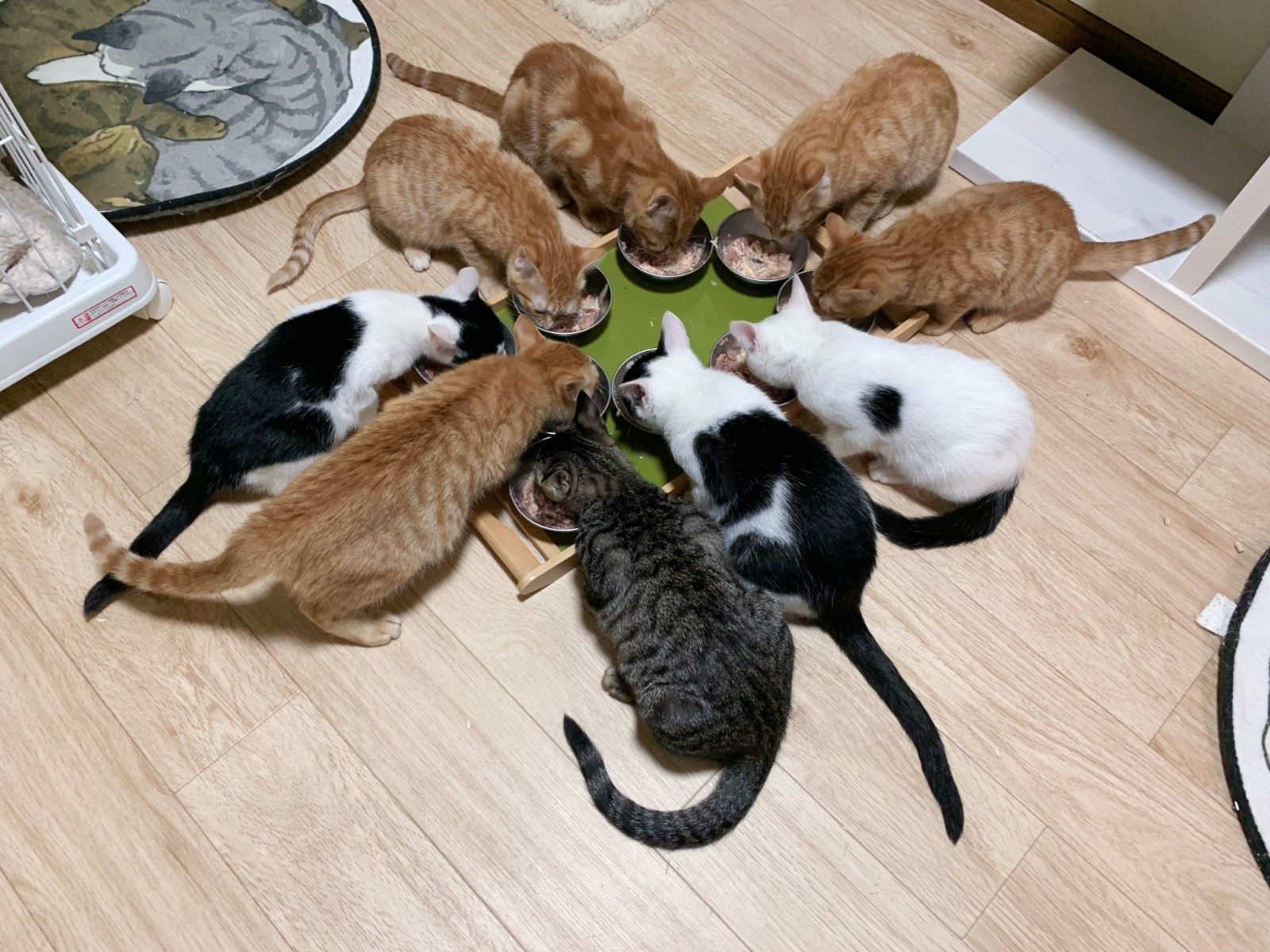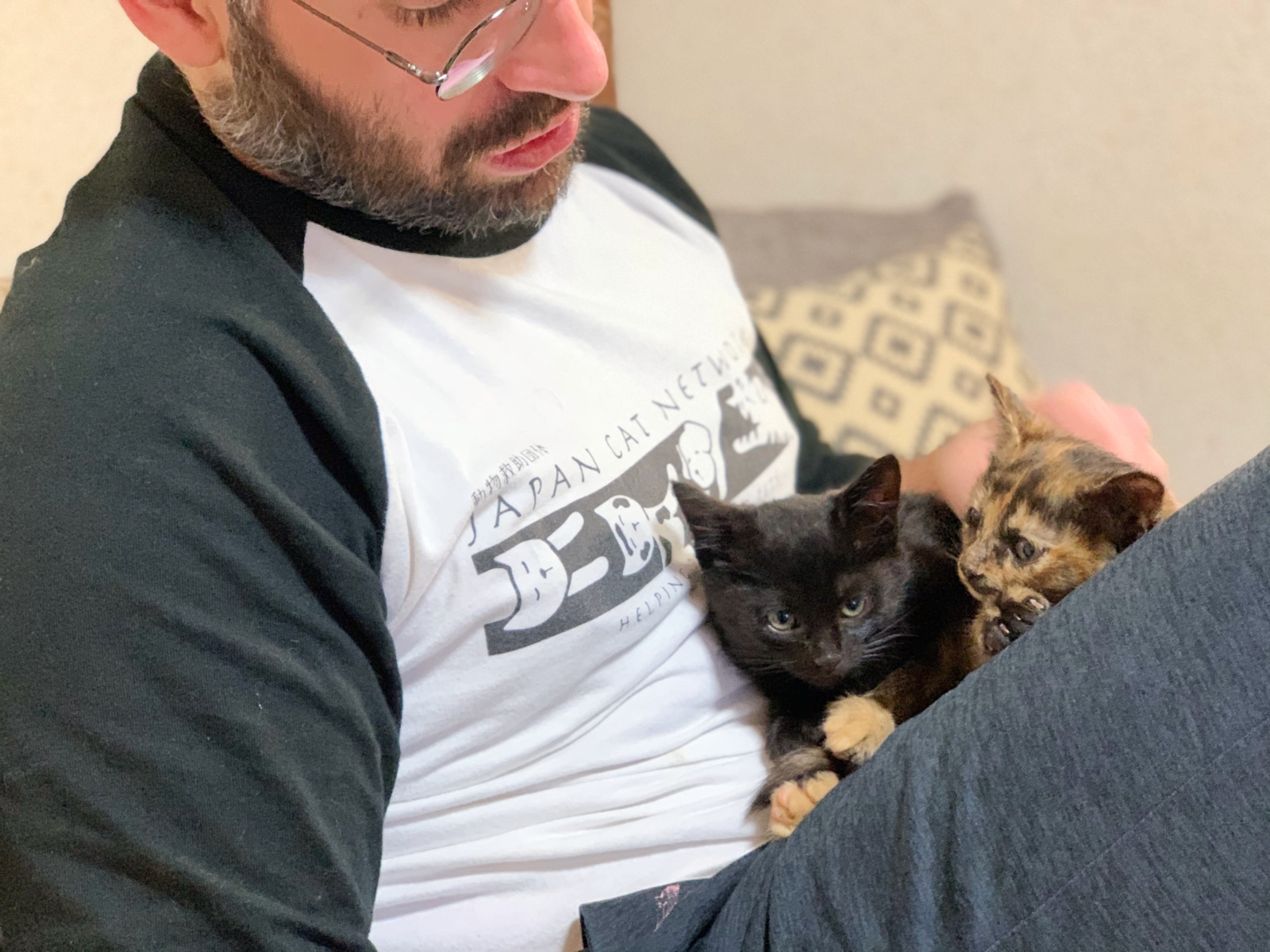Japan loves cats. With owners spending more on quality food and medical care for their beloved furry friends, the average lifespan of pets continues to rise. However, Japan is still behind other developed countries in many aspects of animal welfare.
Some people still see animals merely as a means for making money. Backyard breeders can operate with barely any checks, plucking kittens and puppies away from their mothers far too young and sending them to pet shops or animal cafes — eager to cash in on the cuteness factor. While neutering and spaying rates have risen, it is still common to find unwanted litters of babies that have been dumped, as well as older animals who have lost their home through no fault of their own.
It is frequently left to individuals, rescue groups and shelters such as ARK, Chibawan (Japanese) and Oet no Ouchi (Japanese) to step in and save these abandoned animals. When it comes to cats, the Japan Cat Network (JCN) is one of the most respected names in rescuing and re-homing, as well as a constant source of support and information for Japan’s cat-loving community.
Reaching out across Japan

Founder Susan Roberts arrived in Shiga Prefecture in the early 1990s. Although the U.S. native had no experience in animal rescue, she was concerned by the large numbers of homeless cats in her area. She helped to initiate a successful trap-neuter-return (TNR) program for these animals.
By 2000, Roberts had formed connections with like-minded groups and individuals throughout Japan. She spent three years helping animals in Fukushima after the 2011 triple disaster of the earthquake, tsunami and nuclear reactor meltdown before eventually establishing the Kyoto program in 2014.
"We advise and connect people with resources for helping stray and abandoned cats in Japan and on issues related to living and traveling with cats as expats," says Roberts.
The JCN helps to re-homes cats and kittens rescued by individuals around Japan, and operates two sheltering programs: one in Kyoto and one in Tokyo. They also use online social networking sites in English to connect with the cat-helping community in Japan and internationally.
Live like a local and help save cats

After moving to her current neighborhood in Kyoto to teach English, Roberts realized there were many empty houses in the area. She came up with the idea of starting a guest house rental business, focusing on international visitors, to help fund animal sheltering efforts.
Roberts now runs five guest houses under Maneki Machiya, which operates alongside JCN to support the non-profit organization. For visitors to Kyoto interested in financially supporting JCN's work and meeting the shelter kitties, the guest houses are available to book through Airbnb.
There is also a separate volunteer house and rescue house for those to come to work with JCN.
“There are far fewer animal shelters operating in Japan than in other similarly developed countries.” —Susan Roberts, Japan Cat Network founder
JCN provides shared accommodation and some food items for live-in volunteers, who go through the interview and training process and then commit to 25 hours of help per week. With a goal of maintaining a positive impact on the community, JCN organizes visits to the local schools for the volunteers.
Volunteering for a good cause

Life was difficult for JCN when Japan barred entry to most foreign nationals during the pandemic. However, things are looking up now that life is returning to normal.
Having fallen in love with Kyoto during a previous trip to Japan, Lara Fabiano was delighted to find a volunteer opportunity to help animals at the shelter when she relocated to Japan.
"When I got to JCN, I didn't realize how big the organization was and how it reaches so many places besides Kyoto," says Fabiano, who comes from Brazil. "All the volunteers are part of the system, connected by our work for a great cause, and guided by love, devotion and gratitude. If you want to do something worthwhile and love people and animals, JCN is definitely the right place for you!"
JCN's Kyoto shelter operates through the efforts of three daily shifts of volunteers.
"We have four cat care areas here in Kyoto: our rescue house, which contains our shy adult cat area and quarantine area; our kitten nursery (located in our volunteer house) and our cat visiting house, which contains our friendly and socialized cats. If a cat comes into our program, we start them in our quarantine space and make a plan to visit the local clinic," explains Roberts.
She is also kept busy checking messages and mail from people around Japan with requests for cat rescue assistance and advice. This frequently necessitates tapping into the nationwide network of people willing to help.
Becoming part of the community

Building local connections and understanding JCN's work is important to Roberts, who says that people need to be able to see shelters operating as community assets.
"There are far fewer animal shelters operating in Japan than in other similarly developed countries, meaning many residents have little to no real-life experience with the concept. While it can sometimes be difficult, I think remaining positive is essential to promoting good animal-helping behavior."
"What happens when a family loses pet-friendly housing or a relative passes away, and cats are suddenly left behind? What happens when these cats have nowhere to go and are abandoned? These are community problems that could be effectively addressed by an increasing number of humane sheltering programs," she says.
There are multiple ways foreign residents of Japan can support JCN's activities.
"We need local and live-in volunteers, as well as help online, and we need fosters, adopters and transporters for the cats. We also require ongoing help funding our sheltering and organizational efforts through donations or stays at Maneki Machiya. Finally, by following and engaging in our social media venues from anywhere in the world, you can help us to promote rescue, sheltering and rehoming here in Japan!" says Roberts.
For more information visit the Japan Cat Network website.
© Japan Today Take our user survey and make your voice heard.
Take our user survey and make your voice heard.















4 Comments
Login to comment
japancat
Well done Susan ....It definately would take a foreigner to set up an organization like that in Japan. I think Japanese see cats/pets as 'Living stuffed toys' not realizing that its a sentient being. As soon as it doesnt act as they want it to, they dumped it or take it to animal rescue. The article starts with the sentence " Japan loves cats "...Really ?...Around 25,000 cats are gased to death ( euthanized ) in Japan every year...Google it. A pet is for life not just for a Whim !....All around Japan there are dogs that are kept on a chain by the front gate ALL their life, some dont even bark anymore.
kurisupisu
I imagine Susan has made contact with Ark run by Rlizabeth Oliver?
Yuuju
such an inspiring article! I really love cats!